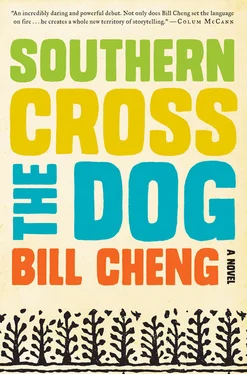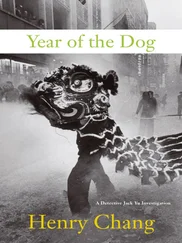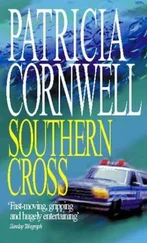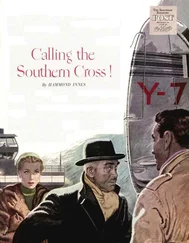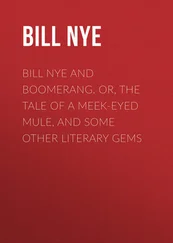For years she said nothing. She became resigned to her place among her brother’s children — sweeper, darner of stockings. Her cheeks turned wan, her eyes bloodshot. She fell sick often. She’d get dizzy and nauseated, and her mouth would fill with water. And one day, when Frankie was four, Till lay down under a bearskin rug and did not get up again.
Frankie remembered the night Sweet Till Haskins went North to Beaver. Her cousin Roan took her by the hand and led her out through the cabin doors. The moon was out, and Frankie felt the air move above her. There were owls winging silently through the dark canopy. She remembered what her mother had told her. One for good luck. Two for love. Black for life. White for death. She craned her neck up to see.
Roan took her to the dugout he and Bossjohn had built as a tanning house and they lay out on the smooth dirt floor. When she woke in the morning, their things from the cabin had been moved inside the dugout. She got up and ran toward the cabin, toward Till. But she paused in her tracks as she watched Bossjohn step out the front door. He looked at her, his eyes set hard under his thick brow. There was a cloth around his mouth and he pulled it down and took a big swallow of air. Then he took off his gloves and threw them in through the window. Smoke poured out and Frankie had the thought that that was her mother. All that was left of her, going up in gray black wisps, escaping through the slats, through the windows up into the air, toward the sun. Bossjohn knelt down and took her by her shoulders. She was tall, even then. He looked her square in the eyes.
You name L’Etang now, he said.
And so Frankie became who she was. She learned to trap and snare and shoot and muck and tell sign on the soft earth. She could tell muskrat from coon from possum. She could read the wind and pick them all by smell. When she was thirteen, she went panther hunting with Bossjohn. She remembered his command as he rose up from the blind. His breathing was smooth and easy. The barrel swung down and spat twice, one and two. And she remembered it was she who’d come to him. It was she who thought she loved him. He was older than Roan. Less wild in the blood. And even though he was rough and hardheaded, it was Bossjohn she’d clung to for warmth those nights they camped out in the leaf. He was the one who kept them fed, who bullied the meat and blood and hides from the wilderness.
But it galled Frankie every time Bossjohn wagged on ’bout Pierre L’Etang, never giving no mind to Sweet Till who was twenty-two when she died, younger than Frankie was now, and had given to this place more’n the rest of them. Frankie felt her mother inside her, a long time buried now, emerging in a noxious twisting inside her gut. She cast her gaze around the empty woods, the shelves of mushrooms growing on the bark, the sunlight breaking through the thick wet air. This was her home and she was sick of it. She knew nothing of the world that Till had come from except that it was not here. Here, nothing moved. The mud would catch you and hold you till it dried you up and snapped you like a reed.

A LOW MIST HAD SETTLED down on the duff, and the morning sun made the air bright and ghostly. Grackles swooped down from their perches in iridescent mobs. Overhead the sun broke through cloud and tree cover. There was God in the morning, Frankie thought. The stock of the rifle was cantilevered against her shoulder, the barrel raised to a salute. She nudged the vines with the muzzle, clearing their path. Though he was still weak, Rowbear kept close to her, never falling more than a few feet behind. He seemed anxious and nervous, easily startled by the noises out in the deep swamp.
The gun was for his protection as much as hers, she’d assured him. There panther in here swamps, she reminded him. Above in the foliage, the branches riffled and Rowbear stiffened. Frankie laughed. Is okay, I protect you. They went for hours through the rough. The air had warmed and the rank of honeysuckle was thick around them. The ground had started to soften so they traveled upland where the soil would hold. By noon, they came to Mòskwas Run, a two-mile track of fast-flowing water where muskrat and nutria nested.
Frankie threw off her hat and knelt down by the run.
Hold my hair, she said.
She held the damp bun against her head and he took the mound in his fingers.
Tight now. Don’t let her loose.
She dunked her head into the stream, taking the water in large swallows. She came back up and Rowbear was watching. His eyes followed her neck down to the dark wet of her shirt. She took his hand from her head and tried to hide her blush.
Go’head ’n slake you fill, she said. It’s some time ’fore we get to the Flats.
Rowbear washed his face and his hands, and only after did he make a bowl of his palms and let a little into his lips. Frankie laid out her jacket beneath the dogwoods and they sat and lunched on knots of hard jerky. After they ate, he let her change his bandage. She wet a kerchief and cleaned out the dirt and blood from around the wound before packing on a thick green salve. She took his hand and showed him where to hold, pressing down against his Adam’s apple. His skin was cold, clammy. He gaped up at her like a fish, his breath oozing from his throat, his eyes wide, his nostrils ringed with wet. She put a fresh cloth around the wound and he winced as she cinched it tight.
You breathe?
He nodded.
Bon, she said, Say bon. Don’ itch it none.
She scraped a fleck of dry blood with her fingernail. It sting?
Just a little, he said.
His voice was rough and full of wind. They were Rowbear’s first words to her in days.
You jes’ lucky I seen you fo’ Roan do you good.
Lucky, he said. Real lucky Robert.
When they’d finished, she tied the rest of the food in a canvas pouch and buried it by a sapling yew. When she returned, Rowbear was asleep. His eyes fluttered behind their lids. His breath rose and fell gently. It was still early in the afternoon, and she judged she could spare him the nap. She took up her rifle and went alone a quarter mile down the run to where she’d set a pair of ankle traps the week before. Above the water, dragonflies held the air, mincing the sunlight on their wings. Out across, she could see gnats churning the air, flashing amber like chaff.
Along the waterline were trails of animal prints. There were two sets — the first belonging to a mob of dog paws, and the second to a single animal, large and clumsy. By the impression of its hooves, she could tell it’d been driving hard through the mud. The prints traveled across the underbrush and disappeared at the bank. She bent and placed her hand inside the groove of its hoof and picked apart the flecks of dried grass and dung.
She woke Rowbear.
We go now, she said.
They washed the smell of meat from their mouths and hands and took off across the run. She held him tight by the loose of his shirt and Rowbear shuddered as the water coursed through his boots.
The prints began again almost immediately, taking up a mud slope. Frankie quickened their pace. She led him north, toward the grasslands, through thickets of brush and sedge and fall oaks. They came to a loess wall. Quick now, she said and up they went, pegging their boots into the footholds. They went on a few yards more before she clapped her hand over his mouth and pointed. Below them was a kettle pond of mud and peat, and in the shallows was a bull. Its fur was dark and clumped, its undersides dripping. Blood coursed from its nose. Along its flank, she could see where the flesh had been torn away.
No brand on him, she said. Feral. Must a wandered into the swamp here by heself.
Читать дальше
